
How to lose fat from stomach... balance blood sugar
The minds of aspiring weight losers are often awash with complications of calorie counting, avoidance of macronutrients, or adherence to some form of overly restrictive diet. It’s time for shift in that mindset! The key to maintaining a healthy weight or losing unwanted belly fat could be as simple as balancing your blood sugar levels more efficiently.
Blood sugar, or blood glucose, is your bodies main source of energy. After enjoying a regular meal or snack your blood sugar rises. The scale of this increase is linked to the volume and type of carbohydrates you've consumed. The glucose circulating in your bloodstream provides immediate energy for cells, or if unused can be stored as glycogen in the muscles or liver for future use.
However, excess blood glucose levels can lead to weight gain. A study completed by researchers at the University of Southern Denmark in 2005 demonstrated that high levels of glucose increase fat production in the pancreas and exhibit high fat levels in the bloodstream.
Stable and balanced blood sugar is important. It plays a critical role in the regulation of hormones, as well as enabling your body to leverage stored fat as energy. What’s more, your blood sugar level dictates hunger and energy. Maintain consistent blood sugar and you’ll keep hunger in check and feel energised.
The Role Of Insulin
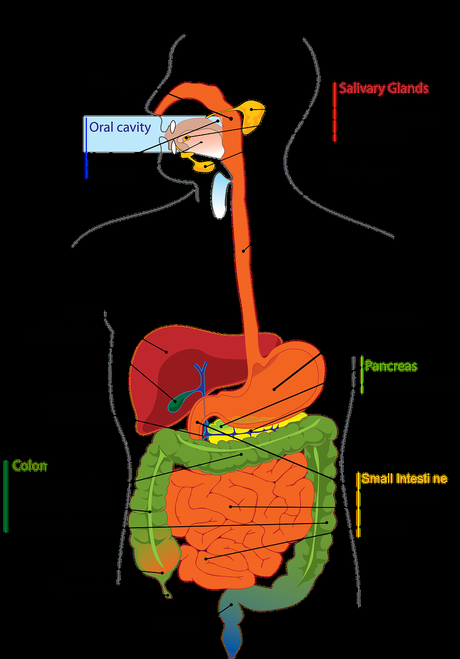
Pancreas releases insulin
Consuming the appropriate volume and mix of proteins, carbohydrates, fats and fiber will naturally stabilise your blood sugar profile and keep nasty insulin spikes at bay. Insulin is a hormone created by your pancreas that plays a primary role in blood sugar transport and fat storage.
When you consume carbohydrate foods, such as starch and fruits, they’re broken down into sugar which your body converts into glucose. The pancreas then releases insulin - informing the muscle, liver and fat cells in your body there is excess energy available. They're instructed to stop burning fat and focus on removing glucose from the blood.
According to WebMD, a credible health related site, blood sugar levels typically hover around 70 to 80 mg/dL prior to eating. It's Insulin's job to keep your blood glucose concentration near this range. However, many people struggle to maintain a properly balanced blood sugar due to their nutritional practices.
The Glycemic Index Of Food
The type of food you consume can influence your blood sugar level and likelihood of weight gain. The glycemic index (GI) is a measurement of carbohydrate containing foods and their impact on blood sugar. The sugar content in High GI foods quickly enters the bloodstream - causing spikes in blood sugar. When your blood sugar remains high it can overwhelm your bodies regulation systems, increasing your risk of insulin resistance and weight gain.
Insulin resistance occurs with excessive volume and frequency of refined carbohydrates and processed foods, which causes your cells to stop taking orders from your pancreas. This limits their ability to store glucose... the surplus transported to fat cells for storage. Prolonged insulin resistance and high blood sugar can also lead to the development of Type 2 Diabetes.
Research published in the "International Journal of Obesity and Related Metabolic Disorders" in 2004 confirmed that Insulin resistance is a predictor of weight gain, particularly in women with a lower BMI. Scientists at MedStar Research Institute analysed 3389 postmenopausal women aged 50-79 years of age enrolled in their Women's Health Initiative Clinical Trial or Observational study.
Is Low Blood Sugar Better For Weight Loss?
Is low blood sugar better for weight loss then? No, not exactly. Many misinformed dieters believe cutting out carbohydrates almost entirely is the key to losing stomach fat, when the reality is this quite different.
When your blood sugar gets too low you can be left feeling weak, tired, light headed and most importantly... hungry! I'm sure you can related to this feeling. Often during a low-blood-sugar-induced moment of weakness you crave a ‘pick me up’. In many cases this prompts unhealthy snacking on heavily processed, high sugar foods that seem readily available.
This sparks an abnormally rapid rise in blood glucose, further insulin secretion and a rapid glucose uptake by your tissues. The subsequent heavy drop in blood glucose over the next couple of hours is often termed a 'sugar crash' - all of a sudden you're back at square one feeling tired, irritable and... hungry.
Prolonged periods of low blood sugar can also force your body into what's termed 'starvation mode'. Your body needs fuel to function, and in absence of glucose it starts breaking down muscle protein for use. Lean muscle is critical in maintaining your metabolic rate and fat burning capability - so this undesirable result will impact ongoing weight loss efforts.
How To Balance Your Blood Sugar
If you're struggling with how to lose stomach, hip and thigh fat it might be time to turn your efforts to balancing your blood sugar. Many people find that stabilising it is sufficient to facilitate long term fat loss.
So how do you go about it? Here are 9 proven ways to achieve stable blood glucose levels and help you lose stubborn belly fat.
1. Don’t Skip Meals

Don't skip meals
Skipping meals is no shortcut to weight loss or blood sugar control. While it can sometimes seem a logical way to reduce your calorie intake and create an energy deficit, numerous studies have linked skipping meals with long term weight gain.
A 2007 observational study of 20,000 American men, published in the Journal Obesity, demonstrated that men who ate breakfast exhibited a lower likelihood of weight gain than those skipping their first meal of the day.
Skipping meals or irregular eating habits can play havoc with your bodies blood sugar - sending you on an insulin rollercoaster! An optimal approach is consuming smaller more regular meals throughout the day to maintain a healthy, balanced blood sugar concentration.
In order to achieve this it's important to ensure you have healthy food on hand at all times to minimise hunger and assist with healthy food choices.
2. Eat Whole Foods
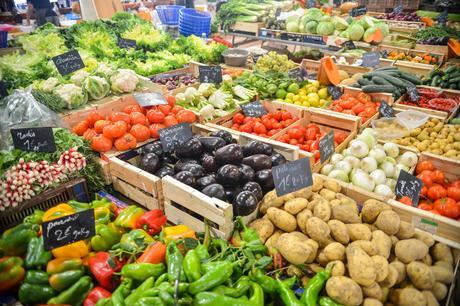
Eat whole foods to regulate blood sugar
Ok, first of all what do we mean by whole foods? Whole foods refer to food varieties that have not been processed or refined (or as little as possible anyway) and are free of artificial substances and additives.
Why are whole foods so important? There are a couple of key reasons. Firstly they contain fewer calories than processed alternatives. Equally importantly they house greater vitamins, nutrients, minerals and antioxidants. Whole foods generally have a low GI and typically provide great support for insulin function due to their high fiber content. Processed foods on the other hand are often stacked full of added sugar, salt, oils and other artificial substances.
Whole foods include fruits, vegetables, legumes, nuts, seeds and grains. Let's talk briefly about vegetables. A study in the British Journal of Nutrition demonstrated the effectiveness of a plate of veges on blood sugar and weight loss. Researchers at Japan Women’s University in Tokyo asked subjects to consume four different meals on separate days. The inclusion of vegetables in the meal had a dramatic effect on blood sugar regulation as well as providing a boost to fat burning hormones.
3. Restrict Added Sugars
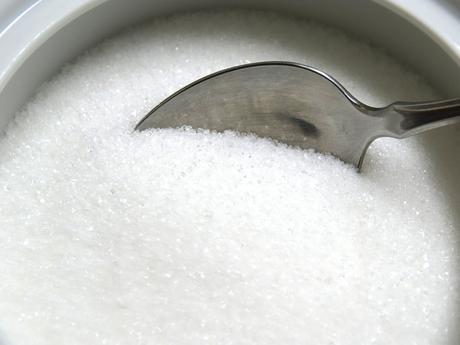
Restrict added sugars
Added Sugars are sugars that are added to foods or beverages during the processing or preparation phase. Not only do they provide no essential nutrients (and are bad for your teeth), they play havoc with your insulin response.
Added sugars are high in fructose, the sweetest of all naturally occurring carbohydrates. Fructose cannot be used for energy by most of your bodies cells, and can only be metabolised by the liver. Excess fructose can damage the liver and promote insulin resistance. It has also been linked to the development of non-alcoholic fatty liver disease.
4. Consume A Balanced Diet
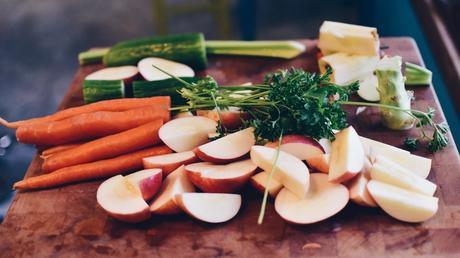
Consume a balanced diet
Eating a balanced diet means consuming a variety of foods that provide the nutrients your body needs for optimal function. It's important you don't rely too heavily on one specific food type or macronutrient (carbs, proteins and fats) to get the majority of your calories.
When eating carbs choose starchy foods such as potatoes, rice and pasta. Ensure you get your 5 fruit and vegetable servings a day. Make sure you consume a variety of healthy proteins such as fish, eggs, lean red meats and beans. Focus on unsaturated fats such as nuts and seeds, and opt for unsaturated oils and spreads (in small amounts). Include some dairy or dairy alternatives and remember to drink plenty of fluids (water).
It's a good idea to get the majority of your daily calories from whole grains, fresh fruits, fresh veges.
5. Get In The Kitchen

Get in the kitchen
Do you find yourself constantly eating out, grabbing takeaway or opting for a pre-prepared meal at the supermarket? If you're serious about losing weight it might be time to roll your sleeves up and spend a bit more time preparing your own meals.
Cooking your own meals give you greater control over what goes into them. Restaurants and takeaway food outlets often include copious amounts of sugar, oil, or sauces and dressings that are high-fat or high-sugar. Creating your own dinner masterpiece allows you to avoid these ingredients and focus on foods that will maintain stable blood sugar.
6. Don't Forget Breakfast
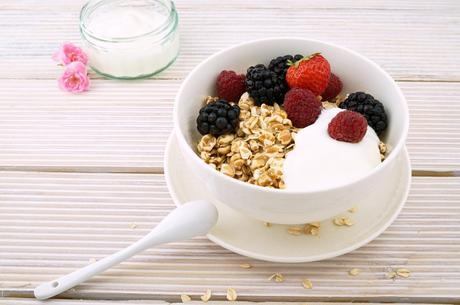
Breakfast - how to lose fat from stomach
According to a 2005 ABC News poll 40 percent of Americans generally skip breakfast. This is a startling statistic. A breakfast that stabilises your blood glucose is vital to set you off on the right foot for the day. Skipping breakfast or choosing unhealthy options can cause havoc with your weight.
For breakfast it is important to include a combination of low GI carbs, healthy proteins and fats - while ensuring a high fiber content. Sugary pastries or cereals are a popular but terrible option when trying to lose belly fat. Why? They are digested quickly and the insulin reaction will ensure you are hungry again very soon.
A blood-sugar friendly breakfast such as plain oatmeal, chopped nuts, sliced apple and low-fat unsweetened yoghurt will keep you on an even keel until lunch. Your body will digest these more slowly, cut cravings, and that mid morning 'sugar crash' and donut shop visit can be avoided! A cup of green tea is also a great option for breakfast. It has been shown to slow the metabolism of glucose.
Related: Are The Benefits Of Green Tea For Weight Loss Overstated?
7. Keep Healthy Snacks On Hand

Eat healthy snacks
Snacking is the downfall of many an aspiring weight loser. When you're busy, or leave too much time between meals, reaching for a snack is an obvious response. Unfortunately, chips, cookies, chocolate and similar unhealthy snack options are readily available. It's too easy to reach for these when energy is low and you're at your weakest mentally.
Make sure you keep healthy snacks on hand at all times, even if you don't think you will need them. What sort of snacks? Fruit such as an apple or banana, a pack of almonds or other nuts are a great choice to tide you over until lunch or dinner.
Here are a bunch of other healthy snacking options.
8. Exercise Regularly

How to lose fat from stomach - exercise
Exercise encourages healthy insulin function. A regular dose of exercise can deplete your stores of glucose in the muscles, allowing more storage capacity for glucose, as well as improving insulin sensitivity.
A study in the Journal Of Applied Physiology also suggested that weight loss induced by exercise improved insulin sensitivity more effectively than calorie restriction induced weight loss.
Related: The Exercise Myth: Science Says Exercise Not The Best Way To Burn Stomach Fat
9. Sleep Well

Sleep well to stabilise blood sugar
Are you getting eight hours of shuteye per night? If you're failing to get sufficient sleep it could be having a pronounced impact on your blood sugar balance. Sleep directly impacts the hormones that influence both insulin and blood sugar levels.
Related: Get More Sleep And Reduce Tummy Fat
Leptin is a hormone that tells you when you are full and to cease eating. If you're sleep deprived you produce less leptin. A lack of sleep also produces more of a hormone called ghrelin. This hunger hormone tells you to keep eating! The combination of these two hormones can cause you to overeat and can dramatically influence your blood sugar balance.
How do you keep your blood sugar in check? Let us know below?

